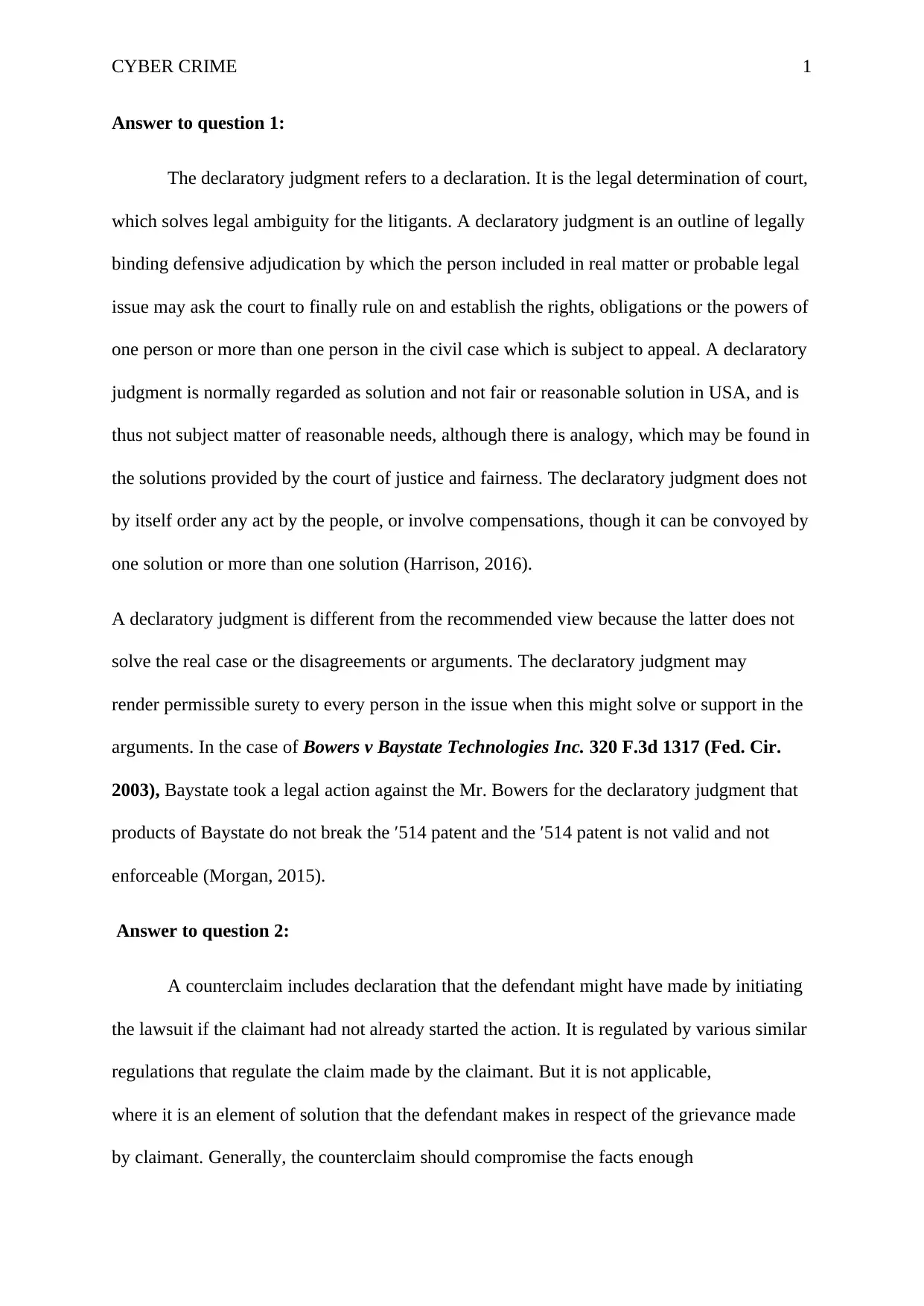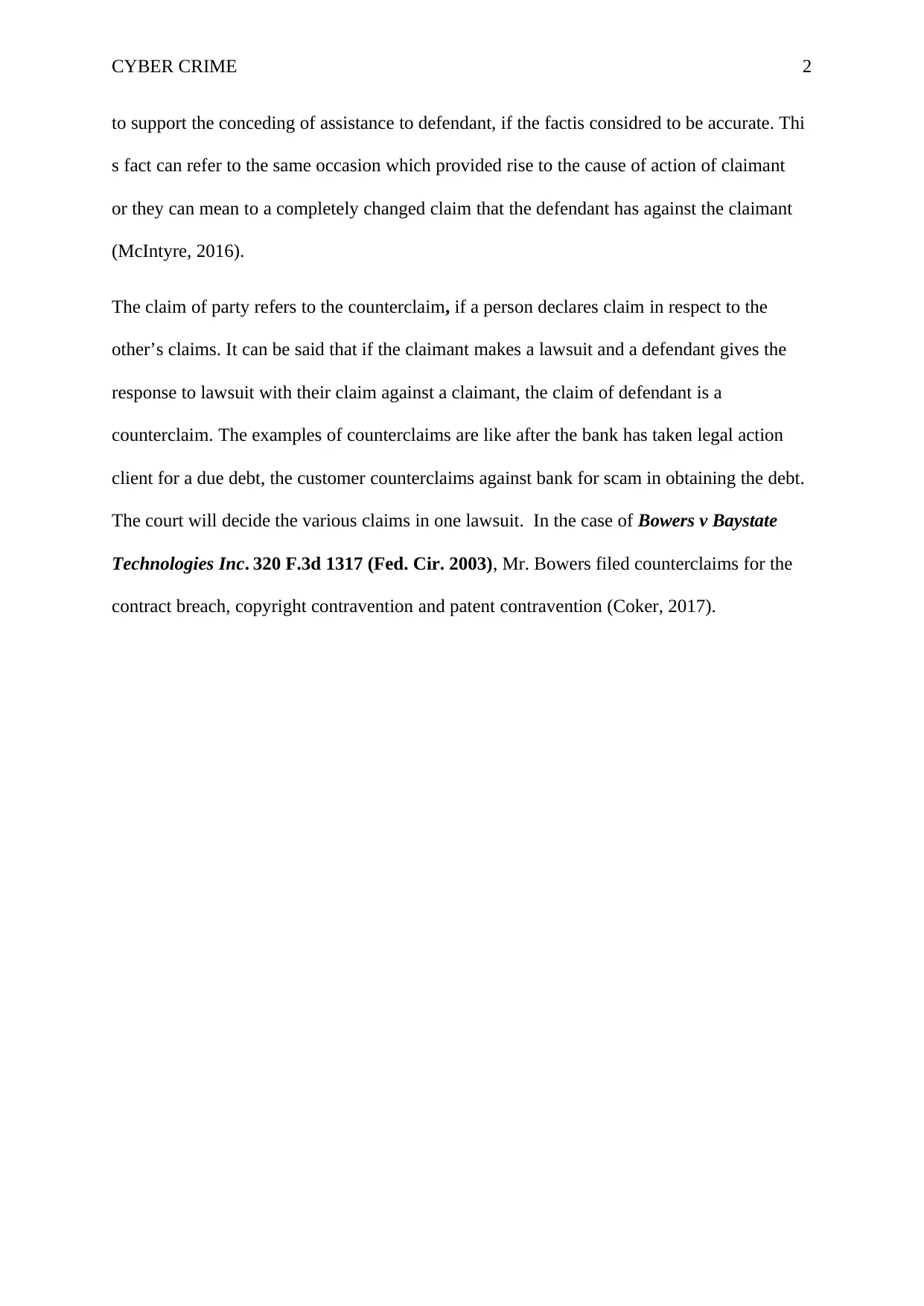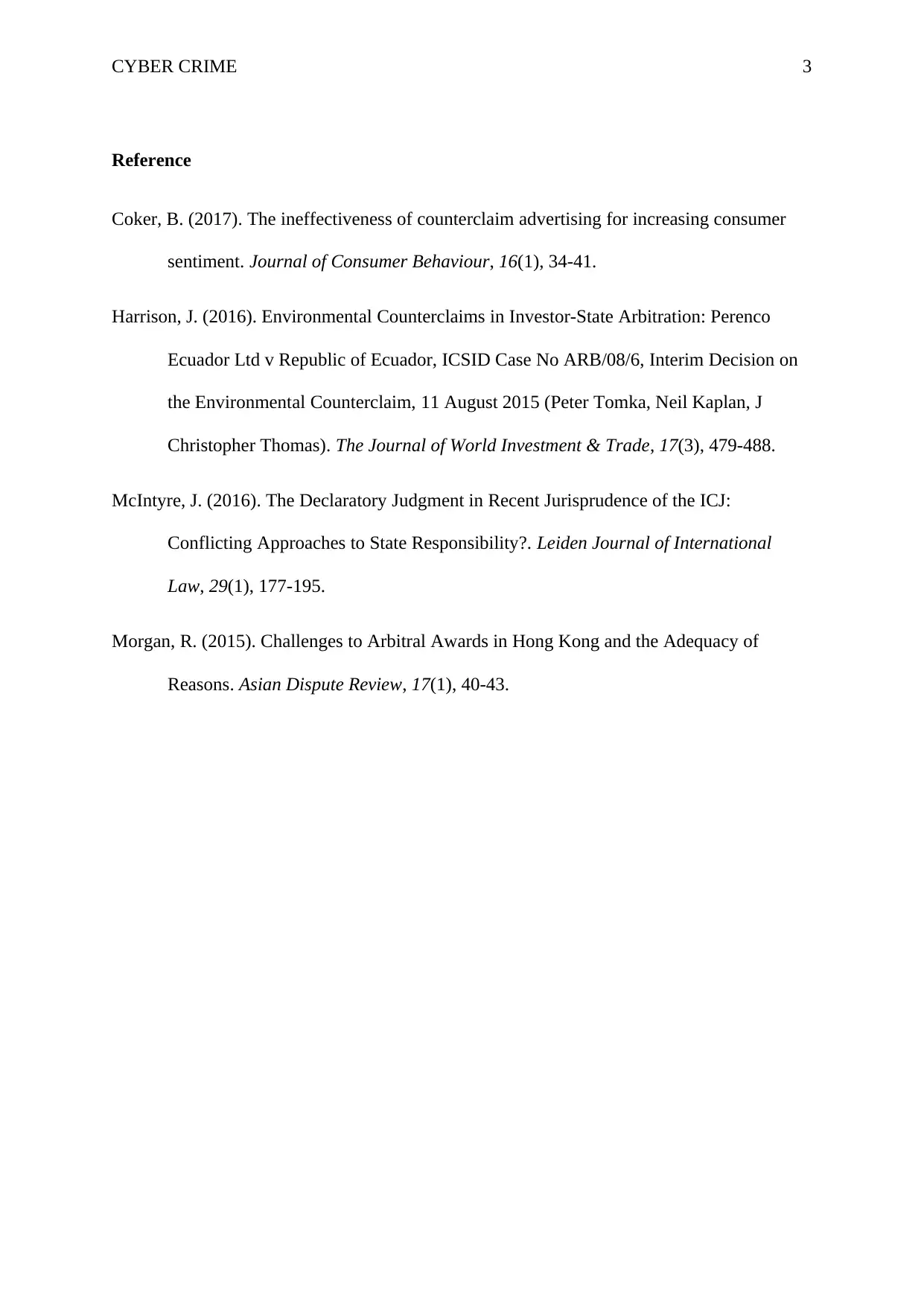Analysis of Bowers v. Baystate Technologies: Judgment and Claims
VerifiedAdded on 2023/06/03
|4
|743
|364
Case Study
AI Summary
This case study provides an analysis of the legal concepts of declaratory judgment and counterclaim with reference to the case of Bowers v. Baystate Technologies Inc. The first section defines declaratory judgment as a legal determination by a court to resolve legal ambiguity, highlighting its function as a solution rather than a fair remedy. It references the Baystate v. Bowers case where Baystate sought a declaratory judgment regarding patent infringement. The second section explains counterclaims as declarations made by a defendant that could have initiated a lawsuit if the claimant hadn't acted first, using the same case to illustrate Bowers' counterclaims for contract breach, copyright contravention, and patent contravention. Desklib offers a platform for students to access similar solved assignments and study resources.
1 out of 4





![[object Object]](/_next/static/media/star-bottom.7253800d.svg)